SCORPIO
R4bn Sanral bridge contract awarded to ‘defunct business’ with R418m debt pile
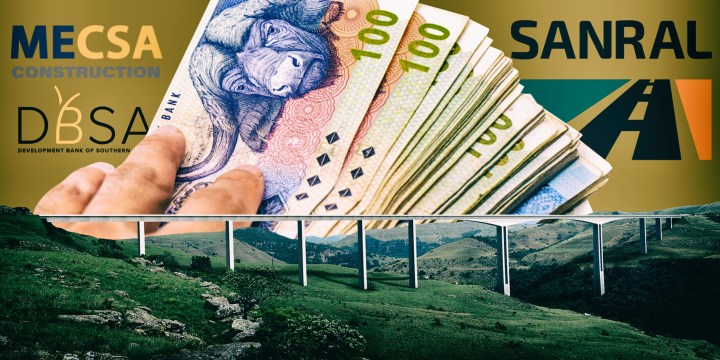
State-owned roads operator Sanral in November 2022 awarded one of its largest recent contracts to a local construction firm and a Chinese conglomerate. But the winning bidders’ financials look deeply worrying, bid documents reveal.
Mecsa Construction, one of the contractors tasked with building the long-awaited Mtentu Bridge in the Eastern Cape, clinched this huge South African National Roads Agency (Sanral) tender despite a R418-million debt pile evident in the financials it submitted for the bid.
Sanral in November 2022 awarded the R4-billion Mtentu Bridge contract to a joint venture (JV) made up of Mecsa Construction — a South African firm — and China’s state-owned China Communications Construction Company (CCCC).
Financial statements included in the bid documents reveal that especially Mecsa was in a dire financial position when it bagged the contract.
After reviewing the financials, one chartered accountant told us Mecsa was effectively a “defunct business”.
The company failed to submit financial statements for the period beyond the 2019 financial year, raising concerns that its current position may be even more perilous than it had been in the years under review.
Scorpio obtained the bid documents through a Promotion of Access to Information Act (PAIA) request.
The documents also raise concerns over CCCC’s finances.
Apart from the heap of debt on Mecsa’s books, the company failed to record a profit in three of the four financial years that were reviewed for the bid. The company instead suffered losses totalling R310-million in the 2017 to 2019 period.
We put detailed queries regarding Mecsa’s finances to Charles Nonkonyana, the company’s CEO and executive chairman.
“Mecsa has no comment, sir, Sanral is best placed to answer these questions,” said Nonkonyana.
Sanral and the Development Bank of Southern Africa (DBSA), which had been roped in to oversee the bid process, said any risks associated with the contractors’ financials will be managed through strict provisions in the contract.
‘High level of risk’
The Mtentu project is among four new contracts with a combined value of nearly R13-billion that Sanral dished out in late 2022.
The bulk of this spend will go to CCCC and its fellow Chinese state-owned entity, the China State Construction Engineering Corporation (CSC), together with their respective local JV partners.
The Mtentu Bridge forms part of Sanral’s broader N2 Wild Coast Road Project. The Mtentu bridge received special mention in President Cyril Ramaphosa’s recent State of the Nation Address.
Once completed, the bridge is set to be the tallest in Africa.
Along with Sanral’s nearby Msikaba bridge, the Mtentu project will benefit the local construction industry and boost job creation, Ramaphosa promised.
But the bid documents and the accompanying financial statements cast doubt over Mecsa’s ability to partake in the Mtentu project without running into serious financial constraints.
An analysis of Mecsa’s and CCCC’s financials by DBSA highlighted several concerns.
The DBSA acted as Sanral’s “support agency” for the 2022 contracts and assisted in evaluating the bids.
Despite worrying trends in especially Mecsa’s financials, the DBSA nevertheless recommended the CCCC-Mecsa JV for the Mtentu project.
According to a report from the DBSA’s bid evaluation committee (BEC), Mecsa only provided financial statements for the period between 2016 and 2019. “The entity did not submit any annual financial statements for 2020 and 2021, which poses a challenge in analysing the current financial position of the entity,” reads the report.
Mecsa’s older financial statements, along with the DBSA’s analyses, reflected the following:
- Mecsa posted losses of R56-million; R124-million and R130-million respectively in the 2017, 2018 and 2019 financial years.
- In 2019 Mecsa had total liabilities of R1.48-billion and total assets of just more than R1-billion, leaving the company with “negative equity” of R418-million. In other words, the company was neck-deep in debt.
- The company’s current ratio, which measures its ability to pay short-term obligations, or those that are due within a year, is cause for concern. “In conclusion, the entity is not in a position to meet its current obligations,” states the DBSA report.
- Mecsa’s operating cash flow, which measures how well a company is able to pay off current liabilities with the cash flow generated from its core business, is another red flag. “The results from the analysis reveal that the entity is not generating sufficient revenues from its core business operations,” the report determined.
- What’s more, Mecsa had a “negative solvency position” and a “negative debt to asset ratio”.
* The DBSA report concluded that Mecsa’s financial standing “show[s] [a] high level of risk for the period under review”.
Visit Daily Maverick’s home page for more news, analysis and investigations
Jonathan Cruise, a chartered accountant and Daily Maverick Insider, agreed that Mecsa’s finances were in shambles, at least according to the financials it submitted for the Sanral bid.
Said Cruise: “They keep on using their creditors’ money to run a defunct business. How can they ever repay their creditors if they keep on making massive losses?”
Another charted accountant and Daily Maverick Insider agreed that Mecsa’s financial position looked bad. This person asked to remain anonymous.
“The negative gross profit margin, current ratio, solvency ratio and debt-to-asset ratio are all indicators that Mecsa is in financial distress after poor financial performance,” said the CA.
Cruise said he was even more worried over the fact that Mecsa failed to submit financial statements for the 2020 and 2021 financial years.
“The analysis [for the Sanral bid] was carried out in late 2022. By then, their latest AFS [annual financial statements] should have been ready for submission. The Companies Act compels them to have AFS for those periods.”
Cruise wonders why Mecsa omitted those documents in their bid application.
“Perhaps the auditors were not able to give them a good enough audit opinion, due to the terrible shape the company was in even before Covid,” he suggested.
The DBSA told us it did request more recent financials from Mecsa.
“The CCCC-Mecsa JV formally responded with supporting documents from their accredited accounting firm, stating that the latest two years of annual financial statements for Mecsa were under auditing,” explained the DBSA.
According to the bank, Mecsa’s accountants claimed the latest financials were due to be finalised in October 2022.
We asked Mecsa’s Nonkonyana for copies of the latest financial statements, but those were not provided to us at the time of writing.
Chinese JV partner
Mecsa’s JV partner, China’s state-owned CCCC, did submit statements for the 2019, 2020 and 2021 financial years.
The statements suggest the company is in a better financial position than Mecsa, but the DBSA report raises a few issues worth mentioning.
We emailed queries to CCCC, but received no response.
Like Mecsa, CCCC did not have sufficient operating cash flow from ongoing business operations to meet its financial obligations.
“However, the entity is showing an improvement in their operating cash flow,” the report found.
Mecsa also did not have “enough liquid assets to finance their future projects”.
Concerning CCCC’s solvency ratio, the DBSA report found that the company “can be considered a higher risk entity relying an average of 2,66 times more on debt than equity” to meet its financial obligations.
CCCC also seems somewhat tardy when it comes to collecting monies from its debtors. The conglomerate is even slower in terms of paying its creditors.
According to the DBSA report, the CCCC on average waited 207 days, or roughly seven months, to get its invoices settled by debtors.
In 2021, it took the CCCC on average more than eight months to pay its suppliers. In 2020, the company waited nine months before it paid suppliers and service providers, the report reveals.
Should CCCC continue this trend, local sub-contractors and suppliers for the Mtentu project could face severe liquidity problems.
DBSA, Sanral confident in JV
We asked the DBSA why it recommended the CCCC-Mecsa JV despite what appear to be clear red flags in the two entities’ financials, especially Mecsa’s.
“Analysis of financial statements forms part of risk assessment of bidders and does not constitute a disqualifier, nor grounds to not appoint a service provider in the context of the advertised tender conditions,” stated the DBSA.
It added: “Issues of financial risk are assessed holistically and within the context of the financial position of the joint venture, and not singularly focused on only one party of the bidding joint venture.”
The DBSA also pointed us to CCCC’s track record.
“It is worth noting that according to information available in the public domain, CCCC is Africa’s largest international contractor, publicly traded, with a 40-year history of building some of the continent’s largest infrastructure projects with reported revenue of $70-billion.”
Concluded the DBSA: “The possibilities of financial problems or liquidity risks are managed through mandatory contractual requirements, including but not limited to construction guarantees and appropriate insurance.”
Sanral said it had “approved the appointment of CCCC-Mecsa based on the recommendation made by [the] DBSA after following the procurement prescripts. Sanral also based its decision on the Sanral and DBSA Internal Audit and Legal proactive assurance reports.”
Regarding the average timeframe within which CCCC paid its suppliers, Sanral stated: “Sanral has its own project management standard operating procedures, which ensures that contractors perform in accordance with the signed contract.
“Specifically, Sanral pays its suppliers and contractors within 30 days from receipt of an invoice and ensures that subcontractors are also paid within the same timelines. Any default by a contractor will be managed through contractual provisions.”
The full responses from the DBSA and Sanral are available below:

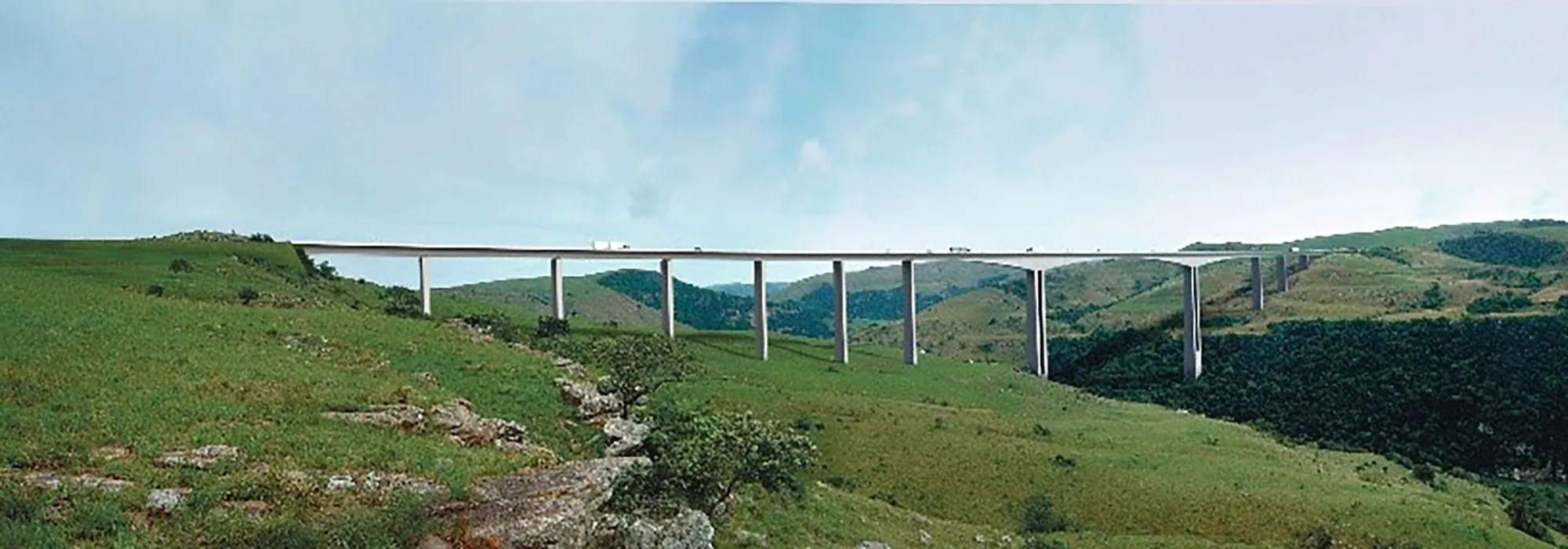
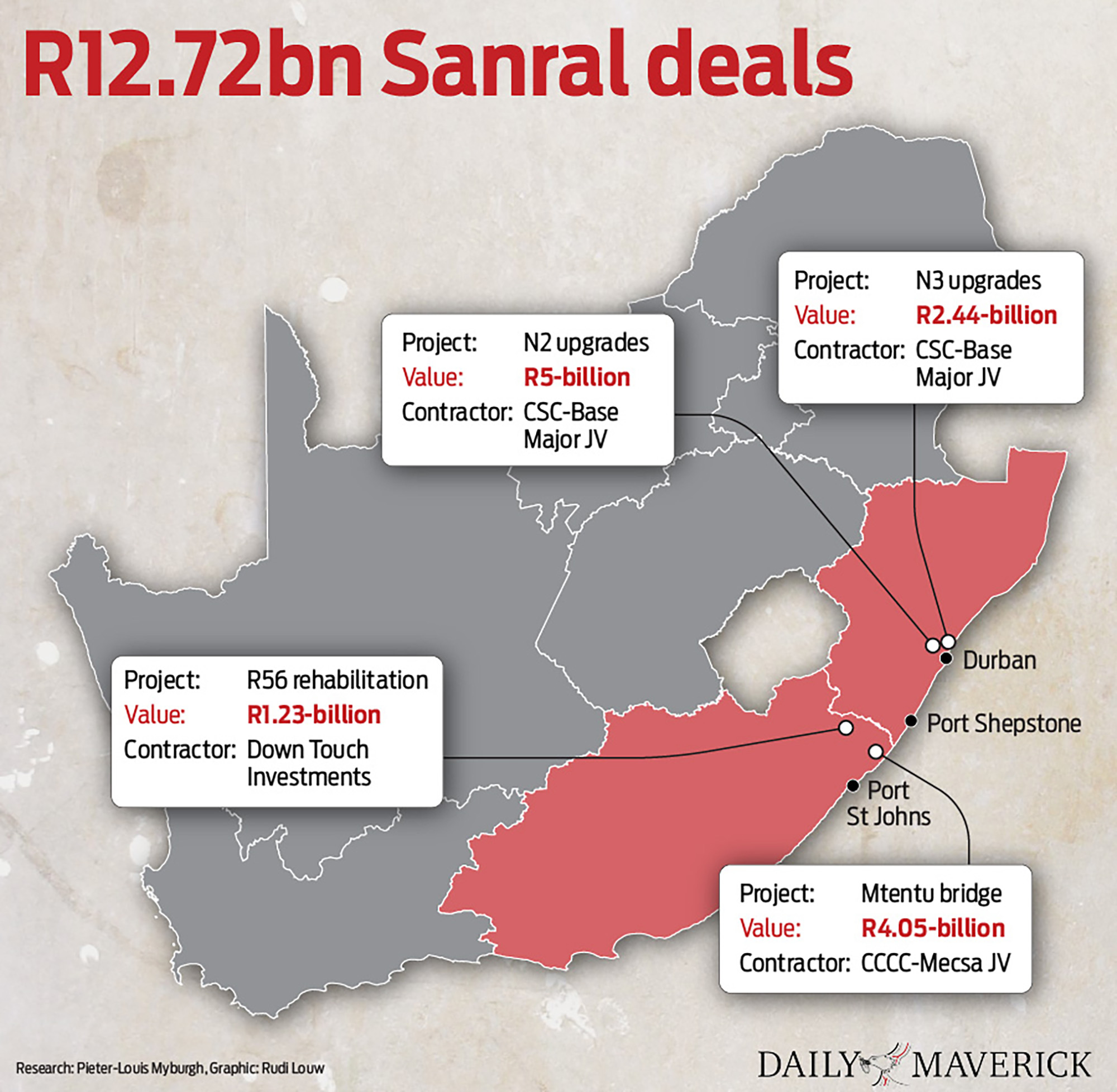
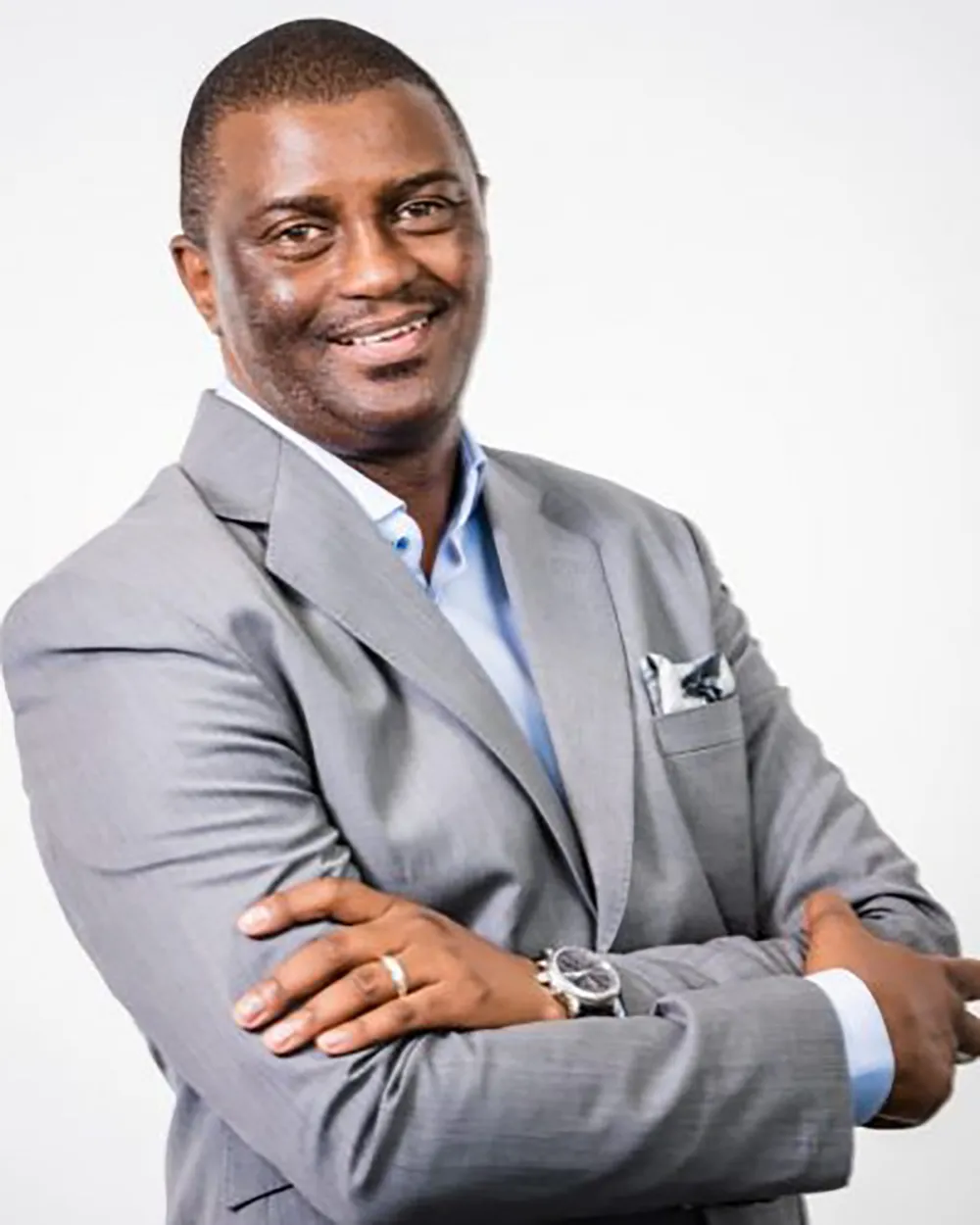
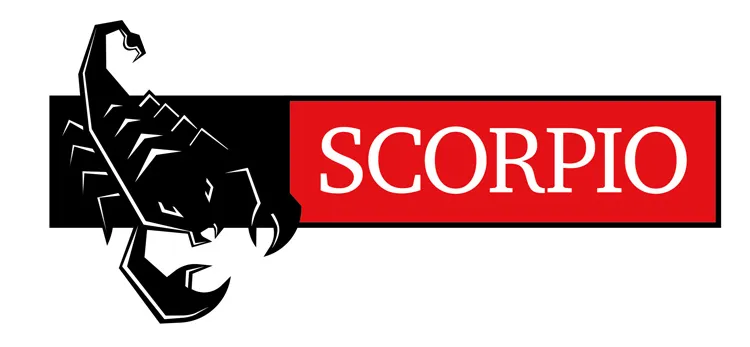















 Become an Insider
Become an Insider
Is this horror show no 717 under control of “fairy godmother,the anc”.We will see
Interesting that a foreign company with dodgy financials, is preferred over a local one. Particularly as the Chinese use nothing, including labour from SA!!!
Kickbacks?
Kickbacks? In South Africa?
You’re joking, of course 🙂
Dodgy financials aside, why are we not able to build this infrastructure with 100% South African skills and resources? Sure, the skills pool maybe shallow, but if you never invest in them you will never create them. If the usual Chinese construction model is followed those jobs will not be filled by locals either further eroding the skills and job creation opportunities. No wonder South Africa cannot create any meaningful number of jobs. I wonder how CCCC will manage with the notorious KZN Construction mafia too……
I see a train smash ahead!
CCCC manages the KZN construction mafia by …. inviting the mafia to join the bid via an insolvent defunct company.
These responses or lack of responses from the “usual suspects” only confirm that they have a lot to hide. Maybe even political pressure influenced by the god Mammon. Dig deeper …
And so it goes on…
Who made DBSA the adjudicators and the bulk of all the contracts awarded to the Chinese – Cyril. He rushed this one through and immediately after this, coincidentally, the impasse with the Chinese not supplying Transnet with locomotive spares was supposedly lifted.
Beyond comprehension!!
What we do know from using Chinese contractors (look to Mozambique for evidence) is that no locals will be employed, rather the entire work force will be imported from China, fed with imported Chinese food, and that no legacy of transferring of skills will be left behind. only the remnants of a very messy construction site. Snags list issues will be left to fester and the structure built may well sag, and not be up to design specifications.
Of course, the ANC may be better negotiators than their Mozambican counterparts – but I wouldn’t bet on this.
No problem with Cash Flows. The modus operandi is to pay the contract amount upfront as usual before one bag of cement is thrown. I guarantee this bridge will never get built and the company will be liquidated once the money has been siphoned off. Nothing changes.
Can SANRAL first please complete the SMALL bridge on the N2 near the George airport turnoff that has been under construction for about 6 years with no construction occurring most of the time. But we sit with a narrow lane detour system where accidents occur. Ditto for the N2 bridge over the Knysna river where there are very narrow lane detours and no work has occurred since the end of last year. All contractors should be South African owned and based.
Any idea what is happening with the half-bridge between Mossel Bay and George?
Who were the other bidders, it would be enlightening to hear their version of the tender process? Compare all bidders prices, financial capacity, tax payments, experience, compliance to local laws and standards, impact on local job creation and sustainable skills development.
Erm, Mecsa’s dire finances asside, have they ever been involved in building bridges? Do they have capacity & skills? I think it would be a reasonable question to ask of the other contractors involved in the 12.72bn of tenders. I mean, Downtouch Investments? Really? It reads like a bad novel.
Well at least it will likely be a strong bridge of 100% steal construction.
Another sign of the incompetency of the SANRAL Board which has no professional engineers in its composition. Last year the board against opposition from the engineering profession took away the responsibility for contract adjudication from the engineers in SANRAL and their consultants and gave it to the DBSA. When will government ever learn how to do things correctly?
They won’t.
Is this yet another case of Tender Entrepenuership?
Dig deaper DM. I’m sure you will find there is more than meets the eye.
I have been involved in the adjudication of many large tenders while I was in the profession and find it somewhat unusual that DBSA is involved to that extent(?)
The usual brilliance in practical (non) compliance, (no) principles, (zero) logic and (zero) ethics from our SOEs, with their propensity for prostitution of values, best practice and the distasteful issue of plain old common sense.
Disappointing, but unsurprising, that DBSA has become a sycophantic follower of these professors.
Watch this contracts closely as I am sure there will be many prices adjustment and delays!
……and so “radical economic transformation” continues even under Cyril’s watch!
Thank you for this exposure DM – it doesn’t make one feel any better but at least someone has their eye on the ball! If we start cleaning up this mess, this country could have a chance of surviving as a going concern. Time will tell!
I smell an OUTA court case in the making. Just insane that in a country which sports the Bloukrans bridge and others like it, we have a tender awarded to a Chinese company and a barely solvent BEE enrichment vehicle. Perhaps we shouldn’t worry though they will just make a mint supplying some machinery and vehicles while the Chinese do all the work.
A large infrastructure project paid with SA taxpayer monies. Monies will flow to a CCP-owned Chinese enterprise and a failed SA enterprise. Those involved should be called the Development Bank of China and the Chinese National Congress.
To me it seems the trough cones in many shapes and forms, but always made at the expense of the common man. What are the possibilities of change in 2024?
I believe the individuals who recommended and endorsed this award should be formally investigated for receipt of payoffs or other unusual rewards. There are highly competent South African construction companies that have invested vast resources in support of the Governments BBBEE policies, upskilled many local South Africans and utilize local resources retaining any profits within the country. I suggest this contract award be urgently reconsidered.
It is most interesting if not absurd that SANRAL and especially the DBSA (Development bank of SA), which is funded by government, our taxes, should award contracts and or give preference to foreign companies while these foreign entities do not pay tax in SA but in China. Nett a da-Facto 28% premium (unpaid tax) for SA as country to use foreign companies for local infrastructure contracts. Thinking or caring about SA .Pty Ltd never was a priority for the cadres.
So the Chinese are using a front company to get tenders??!!!! I predict that very few employees will be South African. All the goods and services will be from China. Yippee!!! Another “state capture”.????!
In support of Gordon Bently’s comments I used to be the Head of national roads 35 or so years ago and have never been impressed with the DBSA’s ability in practical engineering. The problem lies with the SANRAL board with no engineers in its make-up and NOT in the engineers in SANRAL who are competent. Also I have been involved for a couple of decades now in contract dispute adjudication and see big problems coming here.
The money will be stolen and the bridge won’t be built but on the bright side the titanium mining at Xolobeni, (which is the only reason why this road is being built), won’t be able to happen and the beauty of the Wild Coast will be preserved.
The core issue is the Preferential Procurement Policy Framework Act, which obliges government entities to consider the BEE credentials of the tenderer. This opens the doors to “local JV partners” who do bugger all but cream off 25%. This is how “the connected” make their millions while adding zero value. This is a direct tax on the taxpayer and makes everything 25%+ more expensive than it should be.
This Act and its regulations need to be amended urgently so that the BEE considerations do not apply to foreign entities at all. The latest version of the regulations was published in Government Gazette 47452 on the 4th of November last year. This changed some of the numbers but did nothing at all about the broken principle.
What has this Mecsa company built? And is it still standing? This sounds like another “Kusile” and “Medupi” looting event with a very complex bridge, the highest in Africa, built by cutting corners and utilising cheap materials and engineers. It is scary as I envisage the newspapers of the future reporting that the highest bridge in Africa had collapsed. A very sad and foreseeable tragedy, I fear. Rather use the money to finish the embarrassing unfinished fly-overs in Cape Town.
My big concern is that four BILLION rand is a lot of money for such a bridge, even if it seems to be kilometers long. I also wonder what financial controls are mandatory in China (because that is what CCCC will be accustomed to).
The President spent time speaking about bridges built, in the process of being built and going to be built. This type of infrastructure has been the source of major corruption along with roads that become a mess just two years after being built with np quality control. The people of Eastern Cape have been victims of these scams by the Provincial government and SANRAL. With such contractors
you can understand why bridges that have been built are swept away by floods.
What is needed is the police to be involved to investigate the company in terms of work previously done on quality and political connections. The statements of the company have to be investigated for possible tax evasion over the years and how they were awarded the contract. They have to be investigated for bridges swept by floods also. We need prompt investigation by the NPA Investigative DIrectorate and the Hawks with forensic auditors, accountant and tax experts to bring these people to justice and to account for possible fraud, tax evasion, corruption, racketeering and general criminality that are all smelling in this company. If there are people who have died as a result of bridges they have built being swept by floods murder charges must brought against them.